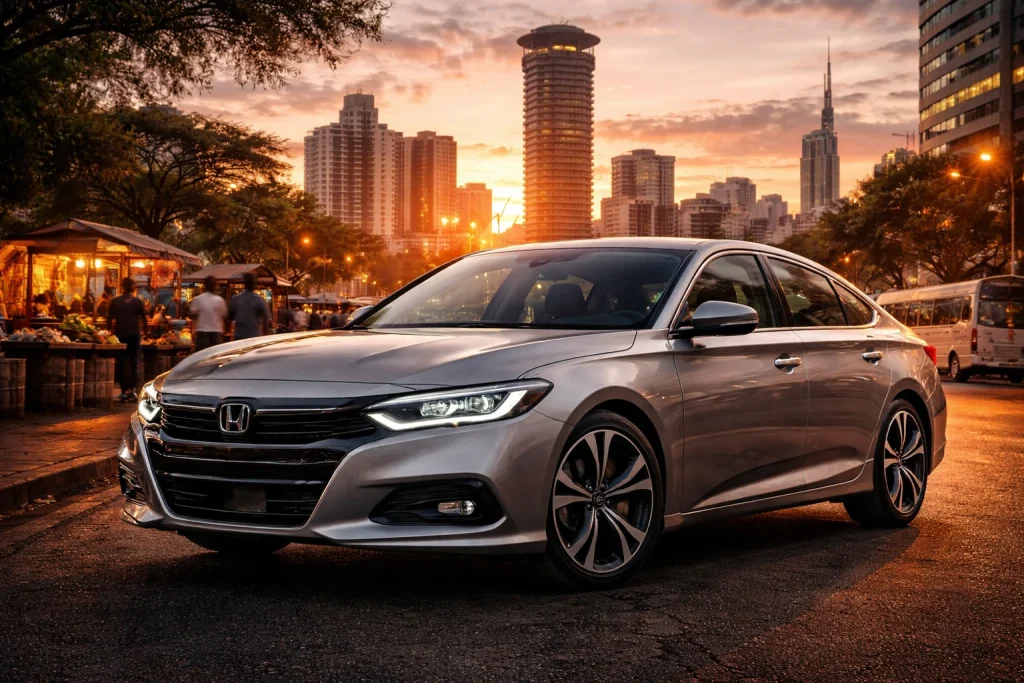Mercedes GLC 250 and 250d is renowned for offering a range of premium vehicles that deliver unmatched luxury, performance, and versatility. The Mercedes-Benz GLC is a mid-size luxury SUV that appeals to a broad market segment, thanks to its high-end features, refined performance, and stylish design. However, the GLC series comes in several variants, with the Mercedes GLC 250 and 250d being two of the most popular choices.
If you’re in the market for a luxury SUV and are considering a Mercedes GLC 250 and 250d, you may be wondering about the differences between the Mercedes GLC 250 and 250d. While both models belong to the same family, they feature significant differences in terms of engine performance, fuel efficiency, and driving dynamics.
In this article, we will explore the key differences between the Mercedes GLC 250 and GLC 250d, along with details on how you can easily import these cars through CarsKenya.

Overview of the Mercedes-Benz GLC 250 and GLC 250d
Before diving into the specifics, let’s first take a quick look at the basic overview of the Mercedes GLC 250 and 250d :
- Mercedes-Benz GLC 250:
- The GLC 250 is typically powered by a 2.0-liter turbocharged 4-cylinder engine, providing a balanced blend of power and efficiency. It is available in both rear-wheel drive (RWD) and all-wheel drive (AWD) configurations.
- Engine performance: 211 horsepower and 350 Nm of torque.
- Mercedes-Benz GLC 250d:
- The GLC 250d, on the other hand, features a 2.1-liter turbocharged diesel engine. Diesel engines are often favored for their fuel efficiency and torque, which provides an excellent balance of power and economy.
- Engine performance: 204 horsepower and 500 Nm of torque.
Key Differences Between the Mercedes GLC 250 and 250d
1. Engine Type and Performance for Mercedes GLC 250 and 250d
One of the most significant differences between the Mercedes GLC 250 and 250d lies under the hood.
- GLC 250 (Petrol Engine): The GLC 250 is powered by a 2.0-liter turbocharged petrol engine. This engine delivers 211 horsepower and 350 Nm of torque. The petrol engine is ideal for those who value smooth acceleration and high-revving performance. It offers a balanced driving experience and is often preferred for its performance and power output in urban settings.
- GLC 250d (Diesel Engine): The GLC 250d, in contrast, features a 2.1-liter turbocharged diesel engine. This engine produces 204 horsepower and 500 Nm of torque, with a focus on delivering higher torque at lower engine speeds. This makes it an excellent option for those who need more pulling power, especially for highway cruising or towing. Diesel engines are known for their superior fuel efficiency and greater torque, providing a more economical choice for long-distance driving.
2. Fuel Efficiency
- GLC 250 (Petrol): The GLC 250 offers decent fuel efficiency, though not as fuel-efficient as its diesel counterpart. The fuel consumption for the petrol engine typically ranges between 8.0 to 9.0 liters per 100 km for combined driving conditions. This is a competitive figure for a luxury SUV of its size and power.
- GLC 250d (Diesel): The GLC 250d benefits from the efficiency of a diesel engine. Diesel engines tend to provide better fuel economy, especially for longer journeys and highway driving. The GLC 250d’s fuel consumption is typically around 6.5 to 7.5 liters per 100 km, making it more fuel-efficient than the petrol GLC 250. This can be a significant factor for those concerned with fuel costs or those planning to drive long distances frequently.
3. Torque and Towing Capacity
- GLC 250 (Petrol): The GLC 250’s petrol engine produces 350 Nm of torque, which is ample for everyday driving and light towing duties. It provides a smooth and responsive driving experience, ideal for urban commutes and general usage.
- GLC 250d (Diesel): The GLC 250d, with its 500 Nm of torque, has a distinct advantage in towing and performance at lower revs. The increased torque makes the GLC 250d better suited for heavy-duty tasks like towing trailers or carrying larger loads, especially in challenging terrains. Diesel engines have an inherent advantage when it comes to low-end torque, which is crucial for towing and off-road capabilities.
4. Driving Experience
- GLC 250 (Petrol): The GLC 250 provides a sporty, engaging drive with its petrol engine. It offers a higher revving engine, which provides a more exciting driving experience, particularly when overtaking or accelerating on highways. The GLC 250 is smooth, quiet, and efficient for everyday driving, especially in city environments.
- GLC 250d (Diesel): The GLC 250d, with its diesel engine, is more suited for long-distance cruising and offers superior torque at lower revs. This results in a more relaxed driving experience, particularly when driving at constant speeds on highways. The diesel engine also tends to offer a more robust feeling when pulling loads or driving up inclines.
5. Environmental Impact
- GLC 250 (Petrol): Petrol engines are generally cleaner in terms of emissions when compared to diesel engines. While the GLC 250’s petrol engine is relatively efficient, it will emit more CO2 and other pollutants compared to the GLC 250d.
- GLC 250d (Diesel): Diesel engines are often more efficient, but they tend to emit higher levels of nitrogen oxides (NOx) and particulates, which can have an impact on air quality. However, modern diesel engines, like the one in the GLC 250d, are equipped with technologies to reduce emissions, making them much cleaner than older diesel engines.
6. Price and Value for Money
- GLC 250 (Petrol): The petrol-powered GLC 250 is generally priced higher than the diesel version due to the nature of the petrol engine and the luxury features offered by Mercedes-Benz. However, it is ideal for those who value the driving experience and are less concerned with fuel efficiency.
- GLC 250d (Diesel): The GLC 250d tends to be slightly more affordable than the petrol model, especially when considering the fuel economy over time. It offers great value for those who need a vehicle with better torque and towing capacity, as well as improved fuel efficiency, making it an excellent long-term investment.
Mercedes GLC 250 and 250d Which One Is Right for You?
Choosing between the Mercedes GLC 250 and 250d depends on your individual needs and preferences:
- GLC 250 (Petrol): Ideal for buyers who prioritize smooth, high-performance driving with excellent acceleration and a refined driving experience.
- GLC 250d (Diesel): Perfect for those who value fuel efficiency, superior torque, and need a vehicle that performs well on long trips, for towing, or off-road adventures.
Importing Your Mercedes GLC 250 and 250d through CarsKenya
If you’re considering purchasing a Mercedes GLC 250 or GLC 250d, you can conveniently import these vehicles through CarsKenya. CarsKenya offers a hassle-free process to import both new and used vehicles from various international markets.
Why Import through CarsKenya?
- Wide Selection: CarsKenya offers a wide selection of vehicles, including the Mercedes GLC 250 and GLC 250d, from reputable dealers across the globe.
- Affordable Prices: CarsKenya provides competitive pricing, ensuring that you get great value for your investment.
- Full Import Service: CarsKenya takes care of the entire import process, including sourcing, shipping, customs clearance, and registration, allowing you to enjoy a stress-free purchase experience.
- Quality Assurance: All vehicles imported through CarsKenya undergo thorough inspections, ensuring you receive a high-quality vehicle.
- Customization Options: CarsKenya allows you to customize your vehicle, ensuring you get the specifications that best suit your preferences.
Conclusion
Both the Mercedes GLC 250 and 250d offer outstanding performance, luxury, and comfort. The choice between the two largely depends on whether you prioritize fuel economy and torque (GLC 250d) or a sporty driving experience with higher performance revving (GLC 250).
If you’re ready to drive home in one of these exceptional vehicles, consider importing your Mercedes GLC 250 and 250d through CarsKenya, where you’ll get a seamless, transparent process and great customer service.




